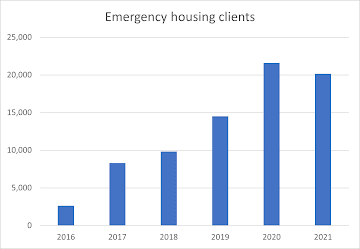An ODT opinion piece recently parodied the rapid adoption of Māori names for government departments. It drew attention to the renaming of the Earthquake Commission as Toka Tū Ake EQC which apparently "reflects the whakapapa of our nation." The name-change decision was made by the Minister and cabinet.
In the beginning, Ranginui (sky father) and Papatūānuku (earth mother) were joined in such a strong embrace it created darkness. When their sons separated them to create light, Ranginui grieved so much for Papatūānuku that his tears flooded the land. Their sons turned Papatūānuku over so their parents would not face each other and see each other’s sorrow.
Rūaumoko is the youngest, unborn son of Ranginui and Papatūānuku. He was turned toward the earth in his mother’s womb. His brothers gave him fire so he could warm himself in the darkness. Being so closely tied with his mother, Rūaumoko felt her pain at the separation. When he stirs, he expresses his anger through geothermal currents, earthquakes, and volcanic eruptions. As we live alongside Rūaumoko’s rumblings and Ranginui’s tears, EQC’s role is to help make our homes stronger, ensure new homes are built on better land, and provide support when damage occurs.
"...there is a shared perception here that religion is principally for the private not the public domain. This was given a degree of official endorsement in July 2010 when a draft report on “Human Rights in New Zealand Today” was released by the Human Rights Commission. This carried a statement that “Matters of religion and belief are deemed to be a matter for the private, rather than the public, sphere.” The wording was subsequently changed following complaints (though the text is still on the HRC website), but it would be hard to dispute the claim that we generally feel more comfortable if individuals or organisations, when speaking publicly, refrain from parading openly any religious convictions they may have."
"How Tāne Mahuta can explain our financial system. Māori oral traditions tell us that Tāne Mahuta dug his shoulders into Papatuanuku (earth mother) and used his legs to push against Ranginui (sky father), separating them and letting the light into the world. With that light, Tāne Mahuta, guardian of the forest and birds, enabled life to thrive."
"The simplest translation of He Pou a Rangi is 'a pillar of the sky'. The concept considers our role as upholders of the sky. We are honouring the sky and in turn, have a duty to care for it. Using 'He' Pou ('a' pillar) rather than 'Te' Pou ('the' pillar) recognises that we are one of many pou or organisations working together to address climate change. Pou can uphold, provide a point of connection, protect, and provide stability. In a te ao Māori view, pou provide a two-way connection, both upholding and uplifting what is above, but also connecting and grounding with what is below. Pou connect Ranginui, the sky father, to Papatūānuku, the earth mother."
"Public services that are intended for the whole community, especially those funded by public money, should be provided in a secular context, open to all, without discriminating against anyone on grounds of religion/belief – either the people who are served or employed."

















